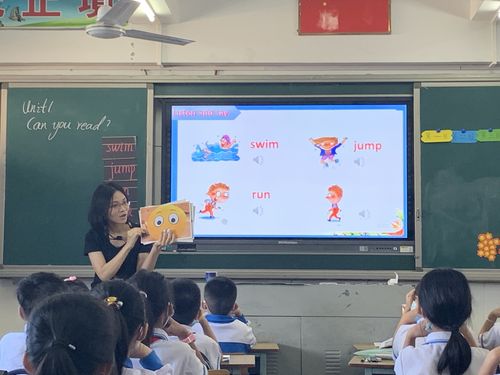小学英语游戏教学方法有哪些
艺均
阅读:964
2024-05-15 14:19:12
评论:0
Title: Engaging Strategies for Teaching English through Games in Elementary School
Teaching English to elementary school students through games can be both effective and enjoyable. Integrating games into the curriculum not only reinforces language skills but also fosters a positive learning environment. Here are some engaging strategies for incorporating games into English language lessons for young learners:
1. Vocabulary Relay Races
Objective:
Reinforcing vocabulary retention and quick recall.How to Play:
Divide the class into teams and designate a starting point and a pile of flashcards with vocabulary words. When the game starts, the first student from each team races to the flashcard pile, picks up a card, reads the word aloud, and runs back to tag the next teammate. The game continues until all cards are collected. The team with the most correctly pronounced words wins.Benefits:
Encourages teamwork, fast thinking, and pronunciation practice.2. Simon Says
Objective:
Enhancing listening comprehension and following instructions.How to Play:
The teacher gives commands starting with "Simon says," such as "Simon says touch your nose" or "Simon says jump." Students must only follow the commands preceded by "Simon says." If a command is given without "Simon says," and a student follows it, they are out of the game.Benefits:
Develops listening skills, vocabulary acquisition, and understanding of imperatives.3. Word Bingo
Objective:
Reinforcing vocabulary and spelling.How to Play:
Create bingo cards with words instead of numbers. The teacher calls out definitions or uses the words in sentences, and students mark the corresponding word on their bingo cards. The first student to mark a complete row, column, or diagonal shouts "Bingo!" and wins.Benefits:
Encourages active listening, recognition of vocabulary in context, and spelling practice.4. Charades
Objective:
Practicing speaking and comprehension skills through pantomime.How to Play:
Write a variety of verbs, nouns, or adjectives on slips of paper and put them in a hat. One student picks a slip and acts out the word without speaking while the rest of the class guesses what it is. Alternatively, the teacher can divide the class into teams and have each team take turns acting out words for points.Benefits:
Enhances creativity, communication skills, and vocabulary recall.5. Story Chain
Objective:
Encouraging storytelling and narrative skills.How to Play:
Sit students in a circle. The teacher starts a story with a sentence, and each student adds a sentence to continue the story. The game continues around the circle until the story reaches a conclusion or a predetermined endpoint.
Benefits:
Develops narrative skills, creativity, and collaboration.Tips for Successful GameBased Learning:
Keep it Simple:
Ensure that game rules and instructions are clear and easy to understand.
Incorporate Variety:
Use a mix of games to cater to different learning styles and interests.
Provide Feedback:
Offer constructive feedback to students during and after games to reinforce learning objectives.
Encourage Participation:
Create a supportive environment where all students feel comfortable participating.By integrating these fun and interactive games into English language lessons, educators can make learning enjoyable while effectively reinforcing language skills in elementary school students.
声明
免责声明:本网站部分内容由用户上传,若侵犯您权益,请联系我们,谢谢!联系QQ:2760375052








